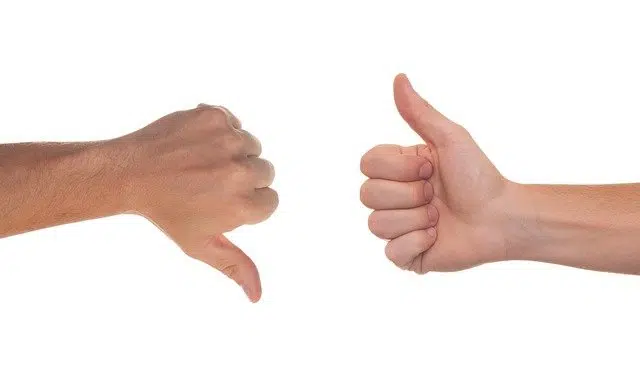
Moral acts are judged according to ethics.
The Latin term actus came into our language as act . The word can refer to an event or an action. Moral , as an adjective, qualifies what human beings do according to an analysis of their badness or goodness.
A moral act is the action that a person develops and that is valued from the point of view of ethics (for its righteousness , honesty, etc.). Although many actions are neutral for ethics, others can carry a moral evaluation since they can be defined as negative or positive according to the effects of the act.
The importance of context
Suppose that a person, when it starts to rain, decides to take shelter under a store sign, which provides protection from the drops. This act has no moral consequences: it cannot be judged as negative or positive. The situation changes if the subject, to find refuge under that sign, pushes an elderly man who was planning to take shelter in the same place. That first action (pushing the old man) leads to the act of taking refuge under the sign being bad from a moral point of view. It is, therefore, an immoral act .
As can be seen, the context often determines whether an act is moral or not. In addition, there are other issues that affect the eventual assessment of the act: whether the person understands the consequences of their actions before carrying them out, whether they are carried out freely or under pressure, etc.
But a negative attitude carried out directly by the subject is not always necessary for their actions to be judged under the magnifying glass of morality . Let's think about the case of a person who works in an animal supply store. Selling accessories and food for dogs and cats doesn't seem to have anything wrong (or good); However, if the owners allocate part of their income to support a dog fighting business, or if they hide said illegal activity behind a normal and acceptable one, everything changes.

The context affects the evaluation of a moral act.
Moral act and psychology
This shows us that although there are neutral acts, those that cannot be considered good or bad, many times the analysis depends on the amount of information, since they can hide a facet that satisfies the requirements of moral judgment.
These nuances are common in judicial processes that seek to resolve criminal cases such as murders and rapes, for example, in which the mental health of the accused plays a fundamental role . Although in the eyes of the victim's family the aggressor will never be a morally acceptable person, psychology points out that even the most terrible acts of humanity can be committed involuntarily, due to different disorders such as Multiple Personality . (or Dissociative Identity ).
The subjective component
The moral component of the acts, on the other hand, is usually a matter of discussion . Does a desperate individual who steals to feed his children act well or badly? Is it justified? The assessment of the moral act may vary according to each individual, but the era also influences the judgment: let us not forget that a decade is enough for an indecent outfit to become part of fashion.
As well as other issues of subjectivity , the moral act exists as long as a series of requirements are met: that someone judges a certain action; that he has the knowledge about the principles to carry out such a judgment; that there be at least one witness to said assessment. The complexity of ethics is unfathomable, largely because it evolves along with each society; Different cultures provide their own points of view, observe and judge reality based on sometimes opposing principles.
